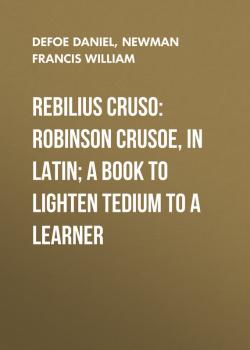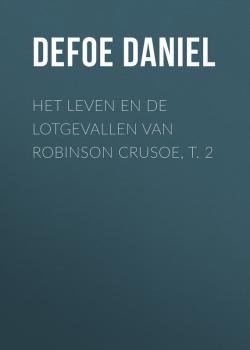ТОП просматриваемых книг сайта:
Defoe Daniel
Список книг автора Defoe DanielАннотация
Probably one of the first examples of journalistic fiction, Defoes A Journal of the Plague Year is a pseudo-eyewitness account of the London plague of 1665. Writing this in 1722, Defoe casts himself into the role of his uncle whom he calls H.F. and who recounts the events in grisly detail but with magnanimous compassion. Aside from the prose, the book has a surprisingly modern edge in the way it combines facts about a sensationally dire historical event with human interest stories for personal appeal. It seems so factual that at times its easy to forget that its just a fictitious account of a real event. <p> The plague (H.F. writes) arrives by way of carriers from the European mainland and spreads quickly through the unsanitary, crowded city despite official preventive measures; the symptoms being black bruises, or tokens, on the victims bodies, resulting in fever, delirium, and usually death in a matter of days. The public effects of the plague are readily imaginable: dead-carts, mass burial pits, the stench of corpses not yet collected, enforced quarantines, efforts to escape to the countryside, paranoia and superstitions, quacks selling fake cures, etc. Through all these observations, H.F. remains a calm voice of reason in a city overtaken by panic and bedlam. By the time the plague has passed, purged partly by its own self-limiting behavior and partly by the Great Fire of the following year, the (notoriously inaccurate) Bills of Mortality indicate the total death toll to be about 68,000, but the actual number is probably more like 100,000 – about a fifth of Londons population. <p> Like Defoes famous survivalist sketch Robinson Crusoe, the books palpable moralism is adequately camouflaged by the conviction of its narrative and the humanity of its narrator, a man who, like Crusoe, trusts Gods providence to lead him through the hardships, come what may. What I like about this Journal is that its theme is more relevant than its narrow, dated subject matter suggests: levelheadedness in the face of catastrophe and the emergence of a stronger and wiser society.
The Fortunes and Misfortunes of the Famous Moll Flanders &c. - The Original Classic Edition - Defoe Daniel
Аннотация
Daniel Defoes 1722 novel, Moll Flanders, remains a fascinating imaginative work, and is in many ways more interesting than his famous first effort, Robinson Crusoe. Having seen bits of two recent film adaptations in the last couple of months on television, and being a budding 18th century scholar, I decided it was time I picked up my own copy of Moll Flanders and see the actual product on its own terms. A story no less about a castaway and delinquent than Crusoe, in Moll Flanders, Defoe attempts to set down the history of a woman with a wild and often desperate life. A character of infinitely more interiority and reflection than Crusoe, Moll gives us through a first person narrative, a look into various stations of life in 18th century England and America. <p> The novel begins with a tip of the hat to that fine progenitor of the novel, Don Quixote, a Gines-like acknowledgment that Moll, as the author of her own story, cannot complete that story within the text of the novel, unless people can write when they are deceased. Amusements aside, Moll begins her story as Crusoe begins his, with an immediate acknowledgment of the instability of the modern self – the corruption of her own name. Born in Newgate prison, and having never known her mother, Moll finds herself among gypsies and landed gentry before settling in Colchester for the term of her youth. Here, she founds her sense of social ambition, unusual even for Jane Eyre in the 19th century, as one in which she figures to be a gentlewoman by earning her own living. Various mishaps and misadventures lead her through marriages, whoredom, and thievery as Moll attempts to find her place in the world as a woman of common birth. Early on she learns the lessons that will aid her on her journey, viz., the value of money, quick wit, and a sense of her own sexuality. <p> While Defoe certainly does not sugar-coat the wrongs of woman in the early 18th century – delving deeply into issues of feminine helplessness before the law, the difficulties of procuring stable employment, and various reproductive issues such as adoption, abortion, and infant mortality – yet he maintains a consistent character of Moll as an extremely strong, adaptive, and resilient female character. The most riveting facet of Moll throughout is her own sense of self-worth and importance, especially in her own history. For instance, while chronicling an encounter with a former lover, Moll tells us that while his adventures are worth their own narrative, this is my story, not his. Molls strength in the midst of doubt, desperation, and general loneliness keeps the readers constant interest and admiration. <p> Defoes exploration of inter-gender relationships are worthy of note themselves for the sheer variety of social, economic, and personal situations he includes in the novel. The economic theme stands out among these, and provides a link back to the preoccupations of Robinson Crusoe. Like Crusoe, Moll is always aware of the value of her personal possessions, and conscious of how to exploit and husband her resources to best advantage. Also like Crusoe, Moll Flanders is keenly aware of the possibilities and drawbacks of English colonial ventures in America. Defoes efforts to link all these themes to the lot of the English prison population, the family unit, and indentured servants and African slaves, are all managed extremely well within the text of the novel. For all this, Moll Flanders remains an entertaining, satisfying, relevant novel, and stands for me above Crusoe as a work of high literary value.










